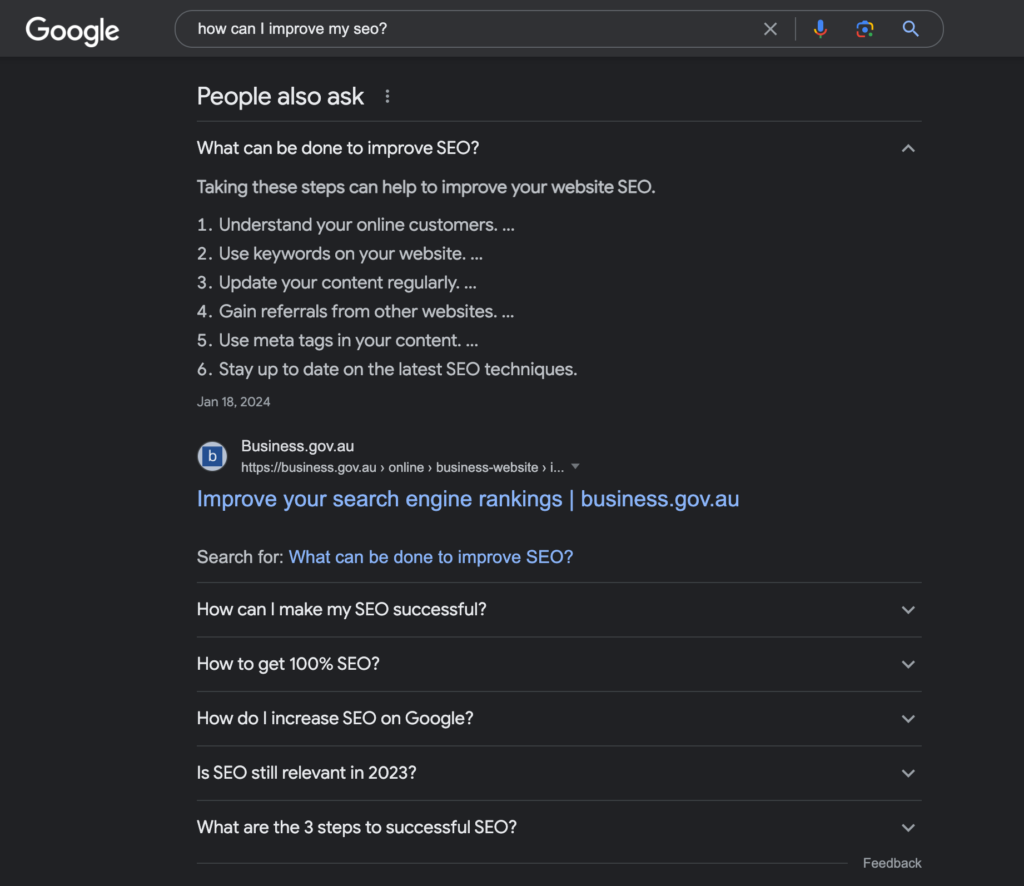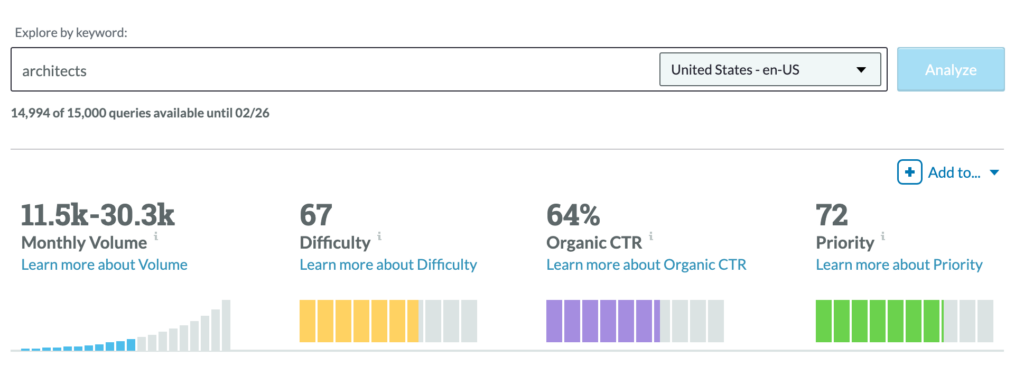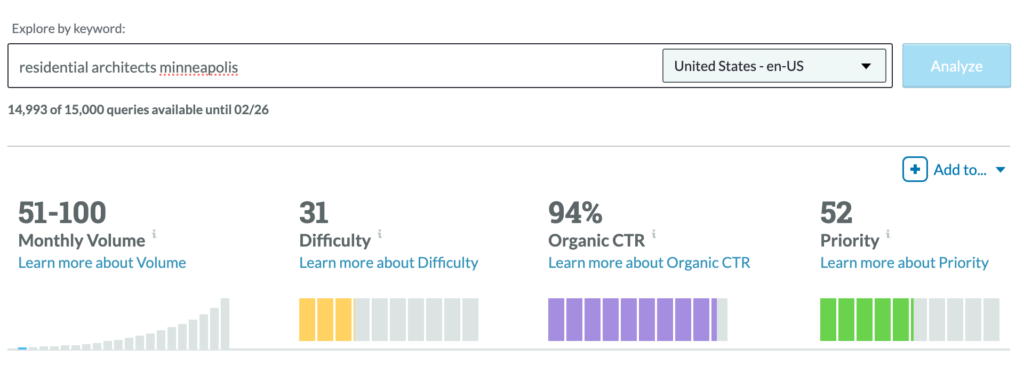
So, you’ve got a website that’s digitally representing your brand – a place for your customers to find information they need, and for new prospects to learn about what you offer. But have you thought about how your site is being discovered by people who aren’t already familiar with your brand? If not, your site may not be as visible as possible in online searches for your products or services, but it’s not too late to improve that through search engine optimization (SEO).
Stacking up against the competition
If you search Google right now for your company’s top products or services, where does your site appear on the search engine results page (SERP)? If your site isn’t appearing first, whose is? What are they doing on their site that you’re not? This is what SEO is all about – getting YOUR site to show first in order to reach prospective customers, as opposed to your competitors.

Google is constantly combing through websites to look for keyword quality, as well as any issues that make the site look spammy or provide a less-than-ideal user experience, and it’s using this data to determine which websites should appear first in searches for relevant keywords. Due to the ever-changing nature of the internet, SEO is not a static metric and it’s important to keep a pulse on your site’s SEO to ensure it doesn’t drop and your site remains as visible as possible to your prospects. If you’re working with an agency to implement a marketing plan, it’s easy to overlook SEO. Considering it can take several months to see improvement (and after all, who’s going to remember to check in on it months after other projects are finished?), it’s much less tangible than something like a new website, print materials, or posts on social media – but that doesn’t mean it’s any less important.
Why should I invest in SEO?
Not only does SEO make your site more visible for people searching for your products or services, but it also improves the overall user experience (UX) by making your site more accessible for screen readers through metadata, giving users a better idea of what a page is about when they see it in their search results before clicking, and getting rid of errors like page not found (404) or redirect loops. This helps prevent prospective customers from leaving your site because of a poor or confusing experience.
Your site’s SEO ranking is always changing as your site is re-crawled and competition changes. The overall landscape of how SEO is determined by search engines is constantly in flux, as well. For example, in recent years there’s been an increase in the amount of featured snippets shown on Google, which often lead to “no-click searches” – searches where users find their answer in a featured snippet and don’t need to click into anyone’s site from their SERP. This has impacted the SEO landscape by decreasing the amount of organic (unpaid) traffic sent to sites. Auditing your site will give you benchmarks to compare future performance to, give you a sense of how you stack up against competitors, and help you understand how SEO changes like these impact your traffic over time.

Keyword strategy basics
Do you know whether the keywords you’re organically ranking for match the ones you ideally want to rank for? An SEO audit can tell you that, and can help build a list of high-priority keywords to work on improving.
Each time you search for something online (most often via Google, which is still used for 92% of searches), your search engine evaluates all possible results and shows them to you in order of which it deems most relevant to you based on your location, the website copy on the site, and the site’s overall credibility.
The more specific a keyword is (long-tail keywords), the easier it is for a site to rank highly, but it’s also likely search volume will be lower. For example, if you’re a local architecture firm, you may want to appear in search results for “architects,” which has a relatively high search volume and high competitiveness. However, you’ll have a higher chance at ranking for a slightly less competitive, more specific search term, such as “residential architects minneapolis,” with lower search volume and competition.

Let’s say, then, that you decide to improve your rank for “residential architects minneapolis” due to lower competition. You’ll want to start by working this phrase into relevant pages, such as an About page. You can also sneak it into places like URLs, image metadata, and blog content.

Next, you might write a blog post, such as a thought leadership piece, all about this specific concept to get the keyword onto your site even more and position your company as an expert on the topic. Having this highly specific page will also help it match closely for online searches involving your target keyword.
What do we do during an SEO audit?
When undertaking SEO work for a client, we start with an SEO audit, which serves as a starting point for informing future recommendations for improvement. Below is an overview of some of the standard strategies we implement when beginning a client SEO audit.
Site crawl
We conduct a site crawl of your site to identify certain types of technical errors potentially impacting user experience and SEO ranking, and make a plan for resolving the issues.
Competitive analysis
We work with you to identify three industry competitors with similar website goals, and get an overview of how your domain authority and link metrics compare to theirs. Domain authority is a metric indicating how likely it is that your site will rank in SERPs.
Identify and improve top keywords
We’ll identify a list of relevant keywords that we want to rank higher. Strategies for improving rank include revising copy on relevant pages to include keywords; adding keywords to headers and metadata; and creating blog content focused on target keyword topics.
Core vitals review
Analyze site speed and identify any load time issues, and compare performance on mobile vs. desktop.
User experience review
We ensure the site is intuitive for the average user and avoids excessive jargon, links work as intended, and important landing pages have a clear call to action to encourage users along the lead pipeline.
Backlink strategy
We assess your link portfolio, and if external linking domains are low, reach out to directories or other sites asking them to link to your site. Having credible websites linking to yours can make a significant impact on SEO, so even though this process is tedious, it can lead to high return.
Consider digital advertising
We might recommend a paid SEM campaign if important target keywords are likely too competitive to rank for organically.
SMART goals
Lastly, we’ll set goals for improvement based on information learned in the audit so success can be measured.
Want to find out more?
Interested in seeing how your site ranks? Get in touch with us and we can help you find out.